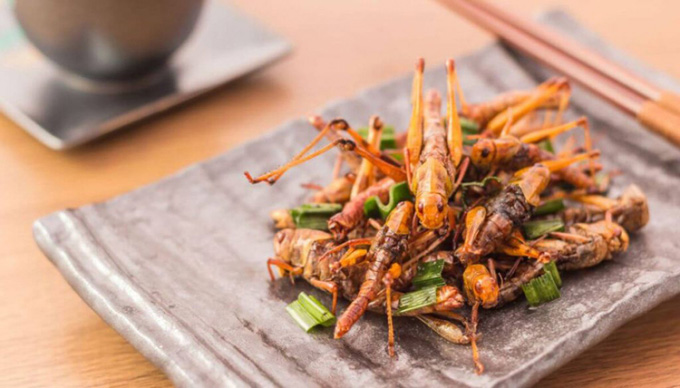Experts at Wageningen University believe that incorporating insects into our diets could help the world move towards a more sustainable future.
The United Nations predicts that the global population will reach 9.7 billion by 2050 and may peak at nearly 11 billion around 2100. This means that agricultural production will be under immense pressure to provide enough food for everyone. Meat consumption has skyrocketed in recent years, and it may soon be insufficient to meet demand. This is where insects become the perfect alternative.
Researcher Marcel Dicke at Wageningen University in the Netherlands has spent over 20 years demonstrating to the world that insects are a reliable food source. “I have eaten ants in Colombia, dragonflies in China, and many other insects like crickets and termites… Some species have nutritional content similar, if not higher, than beef and pork,” Dicke shared.

Some insects have nutritional content comparable to beef and pork. (Photo: Interesting Engineering).
In a paper published in the journal Trends in Plant Science on March 2, Dicke and colleagues focused on the benefits of using food waste as feed for insects, subsequently utilizing the waste produced in insect farming to promote sustainable agriculture. This approach could enhance crop growth, pollination, and resilience.
“The research revolves around finding solutions to global issues and seeing how insects can contribute to that. One of the most obvious benefits is that insects can become a sustainable protein source for human consumption, an alternative to current beef or pork. Surplus materials unsuitable for human consumption can be used to feed insects. For example, leftover grains from beer production can be consumed by insects, ultimately becoming food for humans,” Dicke stated.
Insect farming is also more efficient, especially when compared to traditional livestock. While approximately 25 kg of grass is needed to produce 1 kg of beef, the same amount of grass can yield 10 times more edible insect protein. This is due to the higher conversion rate of insects, with up to 90% of an insect’s body weight being edible, compared to only 40% for cattle.
<pAccording to the paper, insects are fed various types of waste from crop cultivation or food production, which then becomes food for humans. This cycle closes with the utilization of waste from insect production to promote crop growth.
The waste generated from insect farming has two main forms: exuviae (the exoskeletons left behind after insects molt) and frass (insect droppings and leftover food). When added to soil, these materials promote both the growth and health of crops. Insect manure is rich in nitrogen, an essential nutrient for plant growth but scarce in most types of soil; thus, it is often supplemented in synthetic fertilizers.
The research team added insect exuviae to the soil and found that it enhanced the growth of beneficial microorganisms for plants. This not only increased resilience against pests but also promoted crop pollination. Enhanced pollination is accompanied by higher seed yields.
“This new application places insects at the center of our food production system. Currently, insects are often seen as pests, but they could be key to ensuring food security. When producing insects for food, there will be surplus materials from which we can benefit,” Dicke added.


















































